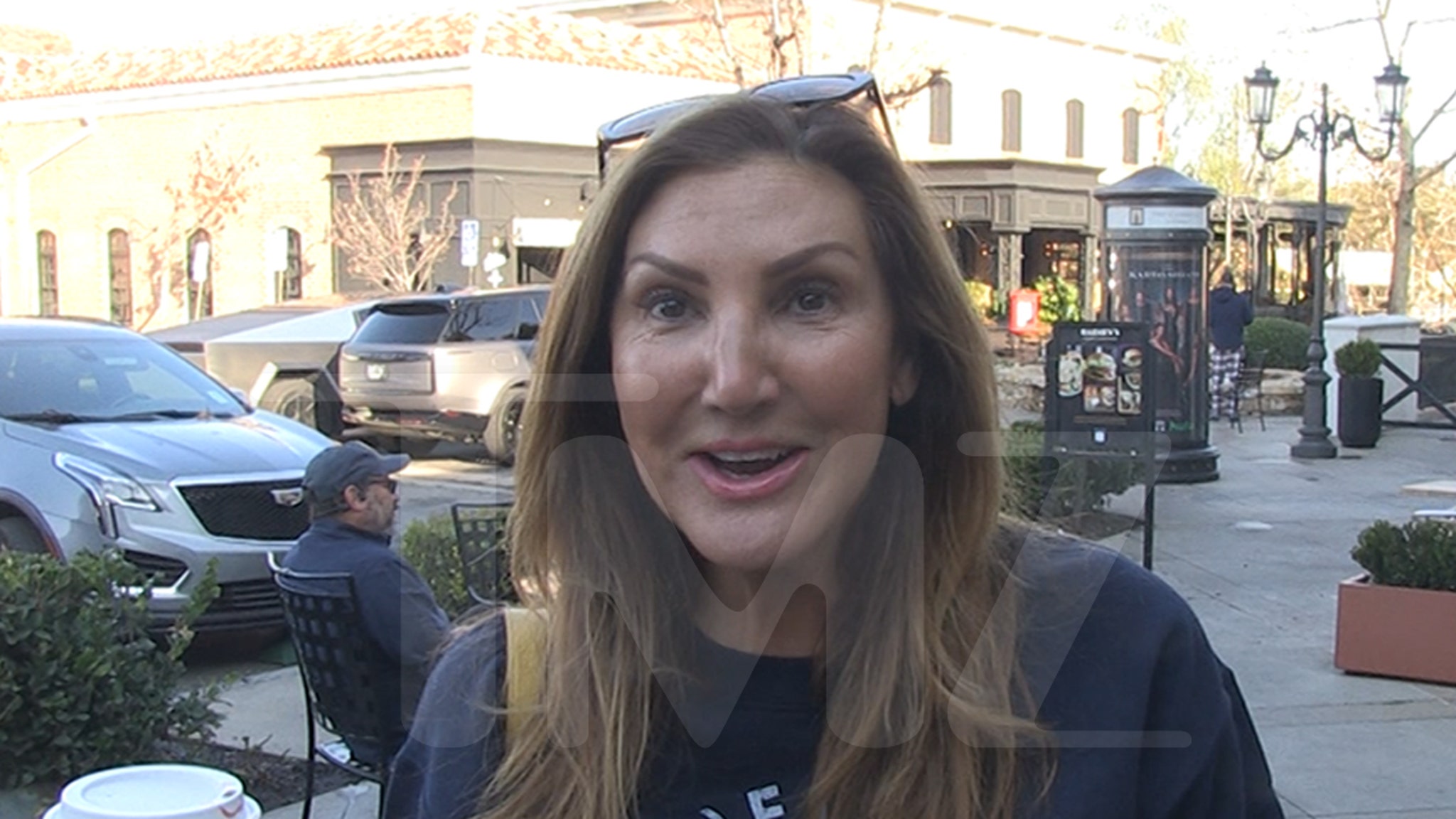Products You May Like
**Ryan Reynolds Is the Real Problem in Justin-Blake Legal War – Heather McDonald’s Take**
In a recent commentary, comedian Heather McDonald shared her insights on the ongoing drama between actors Justin Baldoni and Blake Lively, specifically regarding a vocal dispute that has erupted online. McDonald suggests that the public is misplacing the blame, pointing a finger instead at Blake’s husband, Ryan Reynolds, as the real instigator in this situation.
The conflict stems from a viral audio note made by Baldoni, which ignited considerable debate among listeners. Many found the voice message to be rather uncomfortably intrusive, while others defended its context. McDonald, caught up with the latest developments, expressed her fluctuating opinions on the matter, acknowledging her initial mixed feelings but ultimately leaning toward support for Baldoni. She lauded him for his appealing voice and emphasized that the audio highlights a previously cordial relationship between the two actors.
During her discussion, McDonald noted that while the messages may have crossed a line for some, they reflected a degree of playful rapport. This mindset led her to suspect that Ryan Reynolds might be overreacting or even misinterpreting the innocent interaction, which has led to increased tension and legal action between Baldoni and Lively.
The comedian theorizes that Reynolds might have discovered some of the flirty exchanges on his and Lively’s shared devices, which could explain his protective stance and subsequent escalation of the drama into a public affair. As the situation escalates, McDonald appears to be adamant about shifting the narrative away from Baldoni and refocusing it on how Reynolds’ actions may have contributed to the conflict rather than any wrongdoing on Baldoni’s part.
In reflecting on the wider implications of their legal battle, McDonald suggests that it’s essential for all parties involved to handle the situation with greater care and understanding. Given the public scrutiny they face, especially in an environment fueled by social media, pushing back on social narratives without further multiplying conflict should be a collective priority for the stars.
Despite the tension and the legal ramifications, McDonald’s conclusion is one of hope that these entertainers can steer away from destructive patterns and instead find some resolution that preserves the goodwill previously seen between them. Ultimately, her take implies that it’s crucial to spotlight the broader dynamics that complicate these high-profile relationships, recognizing the potential impacts of perceptions and interactions in the world of celebrity.
Heather McDonald’s commentary raises thought-provoking questions regarding the interplay between personal relationships and public perception, particularly in the context of Hollywood, where even the most innocent exchanges can be misinterpreted, leading to significant fallout.The ongoing legal disputes between Blake Lively and Justin Baldoni have captured significant media attention, especially following Lively’s initial lawsuit. In her legal complaint, Lively has accused Baldoni, who is both her co-star and director in the film “It Ends With Us,” of sexual harassment and orchestrating a smear campaign against her. In response to her allegations, Baldoni has filed a counter-suit, raising various accusations including claims that Lively and her husband, Ryan Reynolds, attempted to hijack the production through intimidation.
An interesting aspect that has emerged from discussions surrounding this dispute is the dynamics within the trio—Blake Lively, Justin Baldoni, and Ryan Reynolds. A source close to the situation suggested that there were underlying tensions that may have contributed to the escalating conflict. There is speculation that jealousy on Reynolds’ part played a role, as he perceived a potential flirtation between Lively and Baldoni. This jealousy may have influenced Reynolds’ approach after the film garnered mixed reviews, potentially leading him to take a more confrontational stance against Baldoni.
Further complicating matters are audio recordings that surfaced recently, in which Justin Baldoni suggests that Lively and Reynolds’ behavior aligns with his portrayals of them as bullies in his allegations. This has stirred discussions among viewers and commentators, with some, like Heather McDonald, noting that these recordings could shift public opinion in Baldoni’s favor. However, Heather emphasizes that her position is not entirely supportive of either party; she positions herself as neutral, indicating that she does not align with Ryan Reynolds despite acknowledging the flaws on both sides.
As the lawsuits progress, the narrative surrounding the film is still developing, with each party presenting their version of events. This contentious situation encapsulates not just personal grievances but also the complex relationship dynamics in the entertainment industry, as high-profile individuals navigate both professional and personal entanglements. The unfolding drama serves as a reminder of the potential turbulence that can occur behind the scenes of film productions, especially when personal relationships intertwine with professional collaborations.
Overall, the ongoing battles between Blake Lively and Justin Baldoni highlight the challenges that can arise in creative environments, particularly when personal emotions and professional responsibilities clash. The outcome of these lawsuits remains uncertain, and it raises questions about the implications for both careers involved, alongside the wider impact on the production of “It Ends With Us.” As details continue to emerge, the public remains engaged in the narrative, waiting to see how the situation will unfold.
